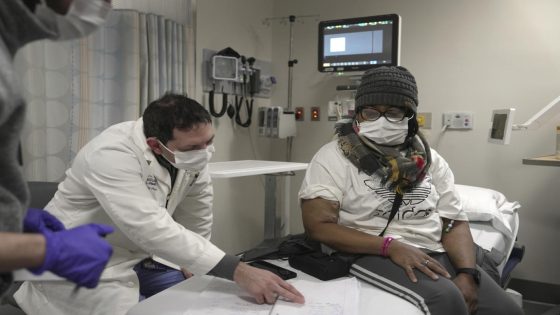On January 21, 2025, during the inauguration of the Unidade de Saúde do Catujal in Lisbon, Health Minister Ana Paula Martins faced a powerful accusation from a grieving widow. She claimed that the Hospital Beatriz Ângelo in Loures was negligent, labeling it “the hospital of death.” How can such serious claims go unaddressed in the healthcare system?
- Health Minister confronted by grieving widow
- Hospital Beatriz Ângelo accused of negligence
- Widow describes hospital as "death hospital"
- Minister attempts to respond but is interrupted
- Álvaro Almeida appointed new SNS executive director
- Minister highlights Almeida's management qualifications
This confrontation highlights ongoing concerns about the quality of care in Portuguese hospitals, raising questions about patient safety and hospital management.
Confrontation at Health Minister’s Event Raises Questions About Hospital Care
Why are patients feeling unsafe in hospitals? During the event, the widow expressed her frustration, stating that her husband did not receive adequate treatment, leading to his death. This situation underscores a growing concern about hospital care quality in Portugal.
Minister’s Response and New Leadership in Health Sector
In the wake of the emotional confrontation, Minister Ana Paula Martins announced Álvaro Almeida as the new executive director of the Serviço Nacional de Saúde (SNS). This decision aims to address the healthcare challenges faced by patients.
Key Concerns Raised by the Widow About Hospital Care
The widow’s accusations shed light on critical issues within the healthcare system:
- Claims of negligence and inadequate treatment at Hospital Beatriz Ângelo.
- Concerns about the availability of medical staff and resources.
- The emotional toll on families dealing with loss due to perceived medical failures.
- Calls for accountability and improvement in patient care standards.
Public Reaction and Implications for Healthcare Policy
The public’s reaction to this incident has been significant, with many expressing solidarity with the widow. It raises important questions about how healthcare policies can be improved to prevent such tragedies. Will this lead to meaningful changes in hospital management and patient care protocols?
In conclusion, this confrontation at a public event has sparked vital discussions about healthcare quality in Portugal. It serves as a reminder of the importance of listening to patient experiences and ensuring that healthcare systems prioritize safety and compassion.































